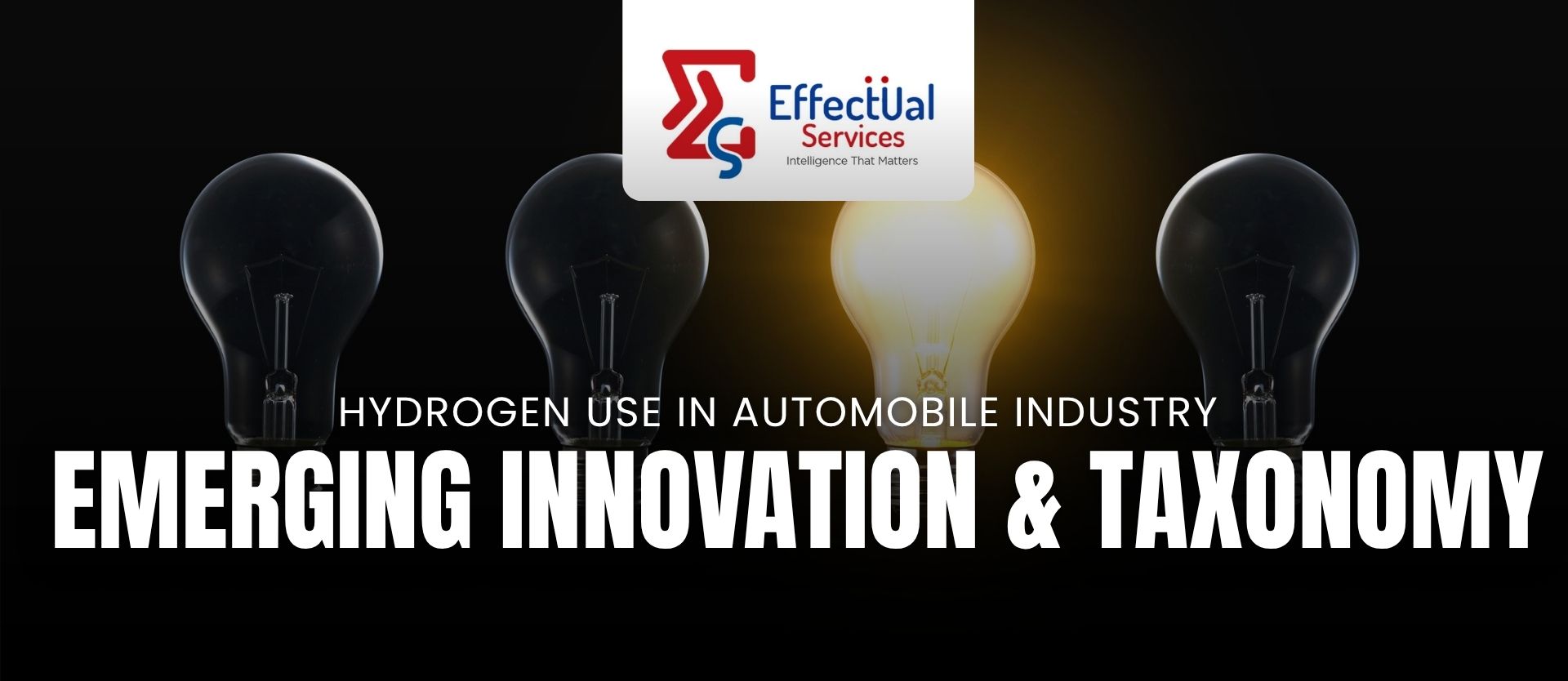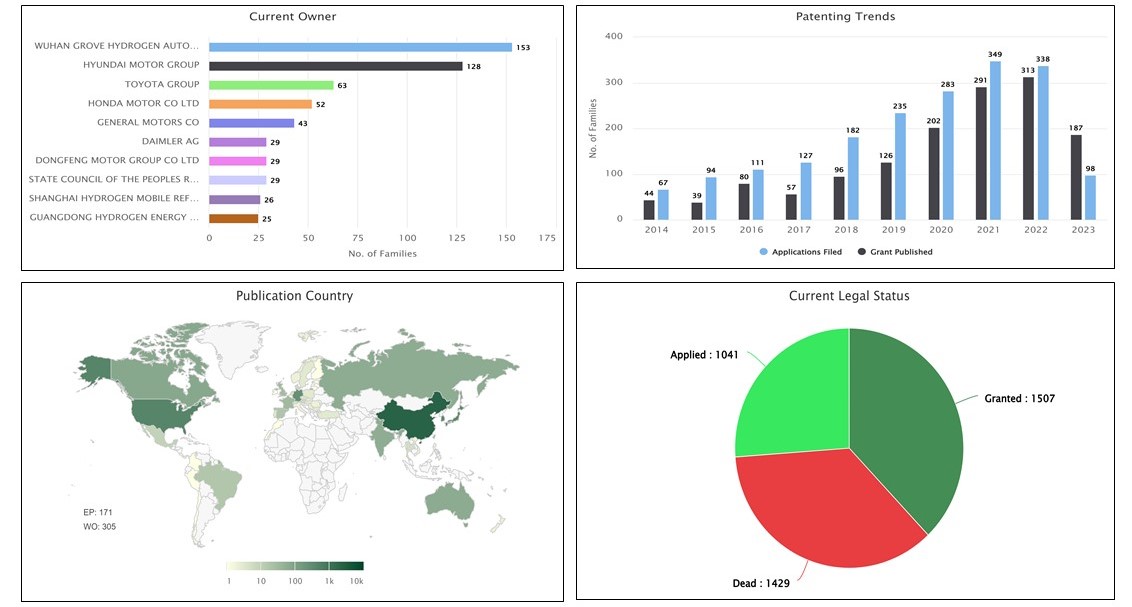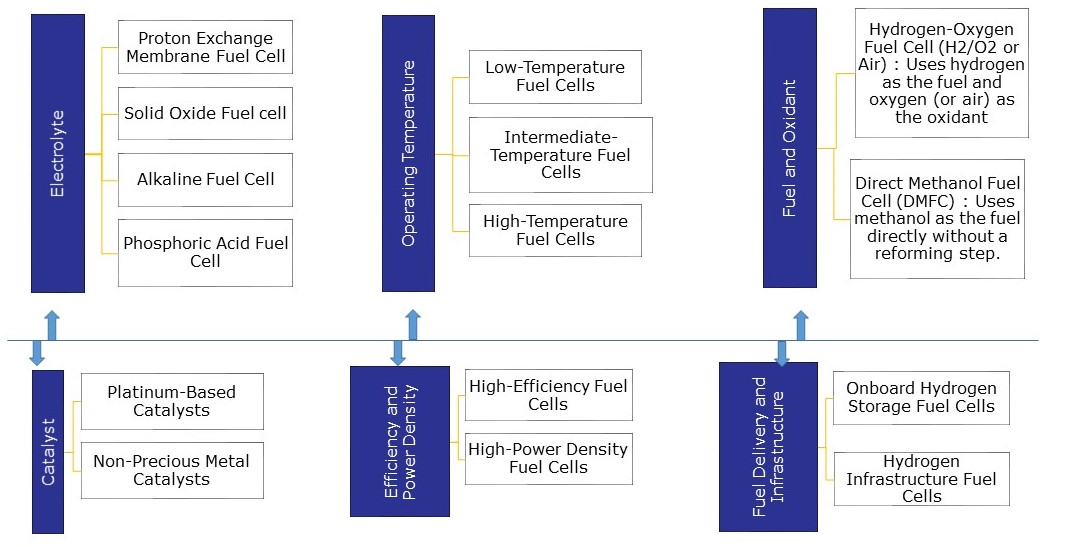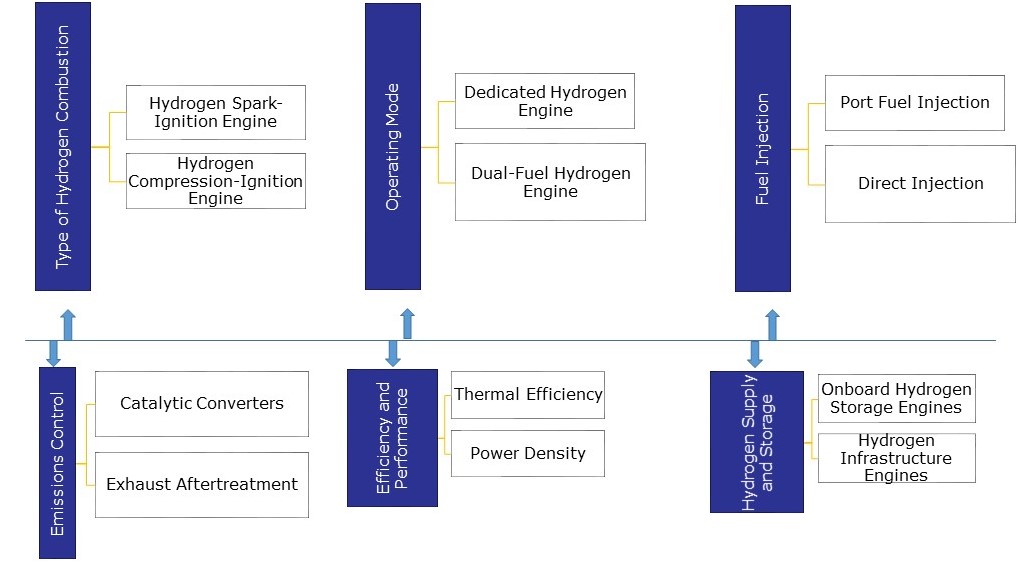Hydrogen use in Automobile Industry: Emerging Innovation & Taxonomy

Hydrogen use in Automobile Industry: Emerging Innovation
CN116364971A (Dongfeng Motor Corp: Filed On: 2023-03-28): Fuel cell vehicles commonly encounter issues starting up in cold temperatures, such as -30°C, or after extended periods of inactivity.
The patent addresses the challenge of starting fuel cell vehicles in such situations. It offers an onboard hydrogen supply system and a fuel cell vehicle to partially solve the problem of cold start or extended idleness. A heat exchanger disposed within a coolable range of the fuel cell module to exchange heat with the fuel cell module; a radiator which is communicated with the heat exchanger through a cooling pipeline so as to enable cooling liquid to circularly flow between the heat exchanger and the radiator; the radiator is arranged in a heatable range of the pressure reducing valve so as to exchange heat with the pressure reducing valve.
JP2023018846A (Toyota Motor Corp: Filed On 2021-07-28): When it's necessary to refuel a hydrogen tank in a fuel cell vehicle, the nearest hydrogen refueling station is usually chosen. However, if that station doesn't have enough hydrogen available, it creates a situation where refueling becomes impractical, leading to inconvenience.
This disclosure's goal is to offer a system and method for guiding hydrogen charging. This system can estimate the remaining hydrogen capacity, charging time, etc., of a specific station and share this information via the Internet with other fuel cell vehicles when a driver charges their vehicle's hydrogen tank at that station. This enables seamless hydrogen charging for fuel cell vehicles.
KR20220006217A (HYUNDAI MOTOR CO LTD: Filed on 2020-07-08): The present invention relates to an apparatus and method for determining an abnormality of a fuel cell system for determining whether an ion filter and electric components constituting the fuel cell system are abnormal.
The abnormality determination device of the fuel cell system includes a fuel cell stack for supplying power, a fuel cell cooling unit including an ion filter for removing ions from coolant that cools the fuel cell stack, and an electrical component grounded together with the fuel cell cooling unit. an insulation resistance measuring device connected to the output terminal of the fuel cell stack to measure the insulation resistance of the vehicle, a temperature sensor for measuring the temperature of the coolant in the fuel cell, and the electrical component based on the measured insulation resistance and the temperature of the coolant and a control unit for determining whether at least one of the ion filters is abnormal.
Related Resources:
Hydrogen Use in Automobile Industry: Objective and Scope
Hydrogen Use in Automobile Industry: Technology Evolution
Exemplary: Non-Patent Literature
|
S.No |
Title |
Author |
Date |
Problem to be solved |
|
1 |
Hydrogen filling station design for fuel cell vehicles |
Weiping Xiao; Yunzhi Cheng; Wei-Jen Lee; Victoria Chen; Surachai Charoensri |
09-13 May 2010 |
This paper focuses on the design of a hydrogen filling station with on-site hydrogen production by electrolysis of water. |
|
2 |
Hydrogen pressure control scheme of hydrogen generation system using sodium borohydride for fuel cell vehicle |
Keisuke Tomoda; Ryo Funakawa; Nobukazu Hoshi; Junnosuke Haruna; Atsuhiro Yoshizaki; Keiichi Hirata |
02-06 December 2013 |
The authors have proposed and made a high density hydrogen generation system for FCHEVs which generates hydrogen by hydrolysis of powdery NaBH4[2]. This paper shows hydrogen pressure control scheme of the hydrogen generation system with a pressure regulator according to variation of fuel cell output power. |
|
3 |
Thermal management of fuel cell-driven vehicles using HT-PEM and hydrogen storage |
Mounir Nasri; Dave Dickinson |
25-27 March 2014 |
In this work a system for hydrogen storage for the heating and cooling of a high temperature polymer membrane fuel cell range extender itself using a metal-hydride storage tank [1] is investigated. |
|
4 |
Estimation of the State of Charge of a Hydride Hydrogen Tank for Vehicle Applications |
D. Zhu; D. Chabane; Y. Ait-Amirat; A. N'Diaye; A. Djerdir |
11-14 December 2017 |
Metal hydrides have been receiving a great attention as an effective and safe way to store hydrogen. Metal hydride-based hydrogen tank has a huge potential for the application of on-board hydrogen storage on the fuel cell electric vehicles. |
Summary

Exemplary: Taxonomy
H2 in Automobile
Hydrogen Fuel Cell

Hydrogen Internal Combustion Engine

About Effectual Services
Effectual Services is an award-winning Intellectual Property (IP) management advisory & consulting firm offering IP intelligence to Fortune 500 companies, law firms, research institutes and universities, and venture capital firms/PE firms, globally.
Through research & intelligence we help our clients in taking critical business decisions backed with credible data sources, which in turn helps them achieve their organisational goals, foster innovation and achieve milestones within timelines while optimising costs.
Solutions Driving Innovation & Intelligence
Enabling Fortune 500's, R&D Giants, Law firms, Universities, Research institutes & SME's Around The Globe Gather Intelligence That
Protects and Nurtures Innovation Through a Team of 250+ Techno Legal Professionals.

